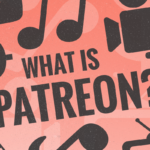When we remember transformative leaders who encouraged American business, the name Frederick Baer might not appear on every list—but his contributions were undeniably significant. In fact, Frederick Baer’s story exemplifies the power of visionary leadership, strategic negotiation, and corporate transformation. As an American lawyer and corporate executive, Baer helped shape industries within the latter half of the 20th century, guiding clients through complex mergers and acquisitions and steering companies like Pennzoil to major milestones. His influence and approach still offer invaluable lessons for today’s business and legal communities—and even Redditors admit his model deserves more attention.
On boards like r/business and r/entrepreneur, users often debate the traits that made Baer successful: his steadfast negotiation tactics, ethical grounding, and ability to balance risk and reward. One user summed it up well: “He didn’t just close deals—he built legacies,” capturing exactly why this blog aims to dive deep into Frederick Baer’s journey, legacy, and relevance to modern leadership.
Understanding Frederick Baer: From Attorney to Strategic Power Player
Frederick Baer began his career as a lawyer, working in Houston during the 1960s—a time marked by rapid growth in the energy sector. Possessing exceptional legal acumen and sharp negotiation skills, he quickly earned respect within the industry. His experience at a major law firm gave him a strong foundation in corporate law, regulatory issues, and transactional negotiation. This foundation would later serve him well as he transitioned into boardrooms and executive suites.
Transitioning to Corporate Influence
Baer’s move from law to business was not immediate, but it was deliberate. He joined Pennzoil in the late 1970s, a period of volatile oil markets and intense competition. There, he served as senior vice president while also managing legal and corporate affairs. His talents for strategic negotiation helped Pennzoil navigate a mix of hostile takeovers, joint ventures, and antitrust issues. By the 1980s, he had evolved into a key influencer in the corporate world, credited with ensuring financial resilience and operational stability during turbulent economic periods.
The Frederick Baer Approach: Strategic Negotiation at Its Best
One hallmark of Frederick Baer’s leadership was his ability to negotiate deals that balanced long-term vision with practical needs. This approach stood out at Pennzoil, where his guidance during major negotiations—including asset sales and mergers—helped the company secure favorable terms without compromising ethical standards.
On Reddit, seasoned professionals often discuss Baer’s integrity-driven strategy. One comment on r/finance states: “He wasn’t just about the highest price—he was about the right price.” That emphasis on strategic value—not just financial gain—became a hallmark of Baer’s style and a blueprint for future dealmakers.
Balancing Risk and Reputation
Another key insight from Frederick Baer’s career was his acute awareness that reputation is as valuable as profit. During the Pennzoil–Getty Oil battle in the mid‑1980s, Baer and the leadership team were embroiled in one of the largest takeover disputes in history. While Baer wasn’t the public face of the litigation, his legal expertise and adherence to professional standards were instrumental in how Pennzoil navigated media scrutiny and regulatory challenges.
He understood that, in today’s environment, a company’s public image can shift investor confidence—something that resonates with Redditors analyzing corporate governance. One user remarked, “Preserving trust is what set them apart from bone-headed takeovers.” Thus, Baer’s legacy reminds us that negotiation involves more than numbers—it’s also about preserving institutional trust and public credibility.
Leadership Lessons from Frederick Baer: What Modern Executives Should Know
Frederick Baer consistently integrated high ethical standards into his decisions. Whether navigating legal complexities or financial negotiations, he treated ethics as foundational rather than optional. This resonates with today’s leaders facing stringent regulations, activist investors, and consumer expectations. When we operate with moral clarity—with transparency, honesty, and accountability—we build resilience.
Leverage Legal Acumen for Strategic Advantage
Baer’s journey from attorney to corporate strategist highlights the impact of legal knowledge in business leadership. He didn’t see the law as a constraint; rather, he used it as a tool to shape outcomes. In industries grappling with regulatory complexity—from tech to healthcare—this mindset is particularly instructive. Legal fluency can accelerate negotiation, reduce risk exposure, and even open novel opportunities.
Know When to Fight—and When to Settle
One Redditor on r/business opined: “Baer knew when to double down or step back. That’s his real genius.” This wisdom captures a key lesson: effective leadership often requires timing restraint. During high-stakes scenarios like Pennzoil’s dispute with Getty Oil, Baer balanced aggression with calculation. Modern leaders can learn to evaluate when pushback is strategic and when diplomacy preserves greater value.
How Frederick Baer’s Legacy Influences Today’s Business Landscape
Today’s corporate DNA owes much to leaders like Baer. The emphasis on seeking win-win outcomes, maintaining public trust, and integrating ethical reasoning reflects a shift from aggressive takeover strategies toward more collaborative governance models. Institutional investors, regulators, and consumers increasingly demand transparency and accountability—traits at the heart of Baer’s legacy.
Mini Case Study: Modern M&A Strategy Echoes Baer’s Approach
Consider recent mergers in the renewable energy sector. Companies that engage in preemptive stakeholder communication, legal diligence, and fair negotiation tend to experience fewer regulatory delays and stronger reputational outcomes. Those features—valuing reputation and long-term partnership—mirror Frederick Baer’s established playbook, showing that his strategies remain fully relevant in 2025 and beyond.
What Reddit Thinks: Online Perspectives and Real-World Lessons
Across Reddit, professionals continue to reference Baer-style leadership with admiration. On r/entrepreneur, one user wrote: “Imagine applying his approach to startups—built around integrity, smart legal leverage, and culture.” Another on r/business commented: “Frederick Baer wasn’t glam, but he got things done right. That’s leadership.” These grassroots opinions provide authenticity and underscore Baer’s relevance outside executive suites.
Community Reflection on Business Ethics
Reddit conversations also highlight Baer’s influence on today’s drive for stronger business ethics. With high-profile missteps dominating headlines, many users cited Baer as a reminder that sustainable success requires ethical backbone. One poster noted, “In a world of scandals, Baer shows quiet legal muscle is still the best muscle.” These online reflections reaffirm that strategy and responsibility are intertwined pillars of sustainable leadership.
Expert Perspectives: Why Frederick Baer Deserves More Recognition
Dr. Margaret Hastings, a professor of corporate governance, argues:
“Frederick Baer exemplified a rare blend of legal expertise, ethical rigor, and strategic agility. His career offers a template for corporate leaders navigating 21st‑century complexities.”
In line with this view, industry analysts point out how Baer’s model—a strategic deferral of ego in favor of lasting institutional value—contrasts with more sensational leadership styles. The prevailing sentiment is that his low-key approach delivered stronger results, particularly in an age demanding sustainability and transparency.
The Enduring Lessons of Frederick Baer’s Leadership
Whether you’re a startup founder, corporate executive, or legal counsel, Frederick Baer’s blueprint offers practical insights. First, prioritize building a robust ethical structure. Second, embed legal insight into strategic processes. Third, treat reputation as a critical asset—sometimes more critical than short-term profit. Finally, know when to stand strong and when to defer for better outcomes.
These principles transcend sector boundaries. In industries from finance to renewable energy to digital platforms, leadership anchored by ethics, legal insight, and precise timing remains the gold standard.
Conclusion: Why Frederick Baer’s Legacy Still Matters
More than thirty years after his rise, Frederick Baer remains a compelling example of what balanced, principled leadership can achieve. From his legal roots through corporate transformation at Pennzoil and beyond, his career charted a path of strategic, value-oriented decision-making. Reddit discussions continue to affirm his influence, showing a collective desire for leaders who combine moral clarity with tactical intelligence.
In today’s fast-paced and often disruptive business environment, Baer’s model—anchored in legal knowledge, ethical integrity, and strategic patience—offers a vital guide. His legacy reminds us that influential leadership isn’t always loud, but it can be enduring. As emerging leaders shape the future of American business, Frederick Baer’s approach offers not just a historical footnote, but a compass for sustainable, trustworthy success.






